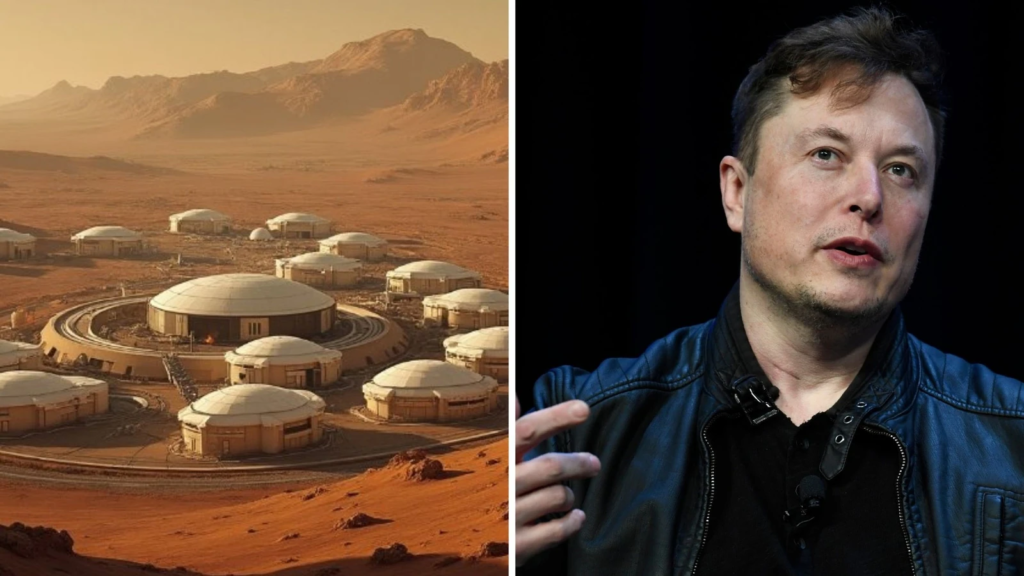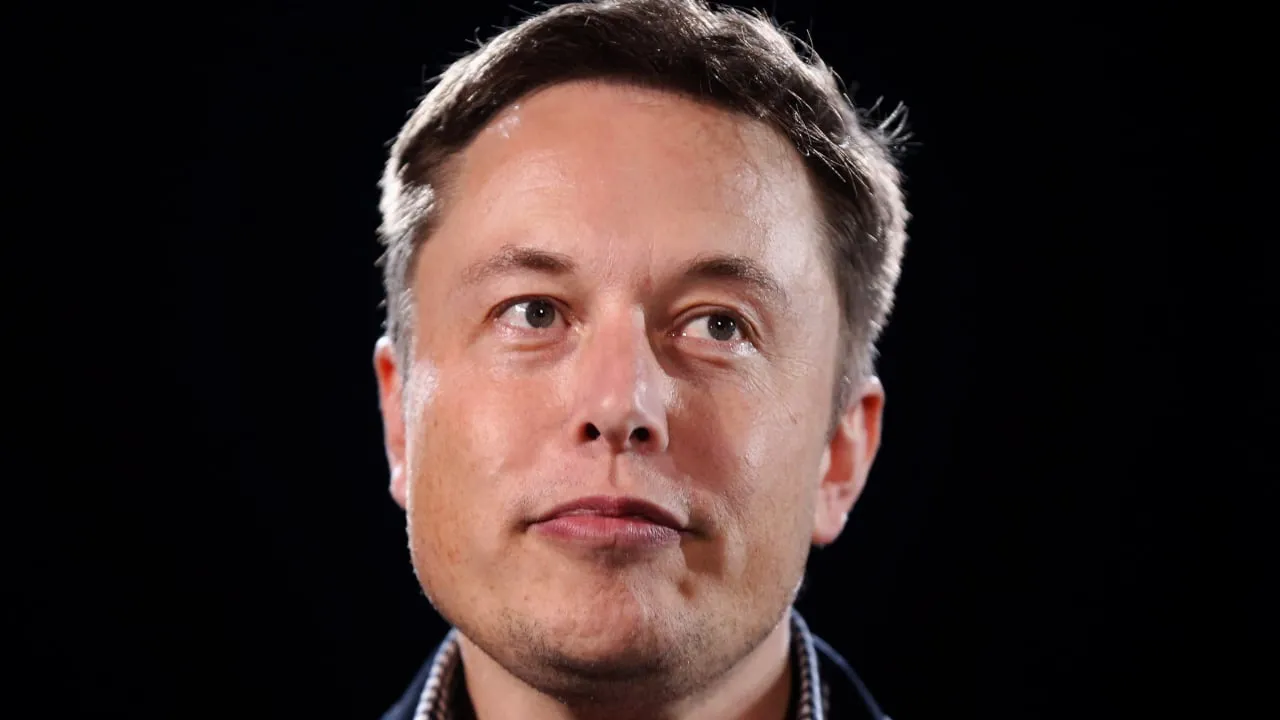Elon Musk, one of the most influential figures in technology and space exploration, has often shared his vision of making life on Mars a reality. As the founder of SpaceX, Musk’s aspirations go beyond mere exploration; he envisions the establishment of a self-sustaining human colony on Mars.
Recently, Musk’s activity in the political sphere has sparked discussions about whether his engagement is linked to his interplanetary goals. Responding to a claim on X (formerly known as Twitter) that he has become politically active to realize his Mars vision, Elon Musk confirmed, saying simply, “True.”
His direct engagement with U.S. politics has generated debate and raised questions about the future of space exploration and the ways it intertwines with political ambitions.
Musk’s Mars Vision: Why Colonizing the Red Planet Matters to Him
Elon Musk’s fascination with Mars is no secret. For years, he has spoken about transforming humanity into a multi-planetary species, primarily to ensure the survival of humankind. In Musk’s view, Earth is at constant risk from factors such as climate change, potential asteroid impacts, and other unpredictable events that could threaten civilization.
He believes that a human colony on Mars would provide a backup for humanity, ensuring that life could continue even if Earth faced catastrophic circumstances.
Read : Elon Musk Buys $35 Million Home for His 11 Children and Their Mothers
SpaceX, the aerospace company founded by Musk, is dedicated to realizing this vision. Its mission statement is to make life multi-planetary, with Mars at the forefront of this effort. According to the SpaceX website, Mars is one of Earth’s closest habitable neighbors.
The planet’s atmosphere, composed primarily of carbon dioxide with traces of nitrogen and argon, could potentially support plant life by merely compressing the atmosphere. Additionally, Mars’ gravity is about 38% that of Earth, which would allow humans to lift heavy objects more easily and navigate with a sense of weightlessness.
True.
— Elon Musk (@elonmusk) October 30, 2024
I think @realDonaldTrump winning makes a big difference in humanity getting to Mars and making life multiplanetary.
This might one day save life as we know it. https://t.co/f9KVHslTY8
Elon Musk believes that establishing a human colony on Mars is not just a scientific curiosity; it’s a necessity. His statement that a “spacefaring civilization” would bring hope for the future resonates with those who believe humanity must continue advancing and exploring.
Musk has famously said that being able to wake up and look forward to exploring the cosmos would give people a sense of purpose and optimism about the future. For Elon Musk, colonizing Mars is more than an engineering feat – it’s a philosophical mission to ensure human survival and inspire the next generation to think beyond Earth’s limits.
The Link Between Musk’s Political Involvement and Space Ambitions
Elon Musk’s recent forays into politics have sparked controversy and curiosity, especially as he ties these moves to his Mars ambitions. As a private entrepreneur, MuElon Musksk has a reputation for innovation and disruption in fields like automotive technology with Tesla, and now he’s extending that influence to space travel and policy.
Musk’s reply to an X user’s assertion that he has become politically active to help make life possible on Mars sheds light on his motivations. “True,” he said, followed by remarks suggesting that political factors, including leadership, could have a significant impact on his vision for Mars colonization.
Musk’s interest in U.S. politics has often been discussed, particularly his stance on policies related to technology, infrastructure, and defense. He believes that political support is crucial to advancing space exploration goals and that leaders willing to prioritize space-related initiatives will play a critical role in making the dream of a Mars colony achievable.

Elon Musk’s mention of former President Donald Trump in this context indicates his belief that certain political figures could accelerate efforts to make life multi-planetary, implying that some leadership styles align more closely with his vision for space exploration than others.
In Musk’s opinion, government backing is essential for long-term space missions, particularly when it comes to regulatory support and funding. Musk’s strategy of working closely with U.S. space and defense agencies, such as NASA and the Department of Defense, demonstrates his awareness of the importance of policy in enabling ambitious projects.
For example, NASA has partnered with SpaceX for crewed spaceflights and missions to the International Space Station. By fostering such relationships, Elon Musk has gained a deeper understanding of how the government’s role can either accelerate or hinder major aerospace advancements.
His political engagement, therefore, is both a strategic decision and a practical necessity as he seeks to overcome the significant financial and regulatory challenges associated with space colonization.
Engineering Challenges and the Future of Mars Exploration
The journey to colonize Mars presents formidable engineering and logistical challenges. Establishing a self-sustaining human colony on a planet millions of kilometers away involves advanced technology, massive financial investment, and cooperation on an unprecedented scale.
SpaceX has made strides toward this goal with its Starship rocket, which is designed for deep-space missions and has the capacity to transport both crew and cargo. However, transporting humans to Mars and creating sustainable living conditions there remains a daunting task.
One of the key challenges is creating an environment in which humans can survive and thrive. Mars’ atmosphere, while capable of supporting plant life with some modification, lacks the oxygen necessary for humans to breathe. The atmospheric pressure on Mars is also much lower than that on Earth, which means that habitats on Mars would need to be pressurized.
To address these issues, Elon Musk has proposed using the natural resources available on Mars, such as carbon dioxide and water ice, to create breathable air and support agriculture. However, such endeavors will require cutting-edge technology and vast amounts of energy.

Energy generation on Mars is another significant concern. Elon Musk’s SpaceX team has proposed solutions such as solar power to generate electricity, but Mars’ distance from the Sun means solar energy would be less efficient than on Earth. Other options, like nuclear power, could be explored, but these bring their own set of safety concerns.
To tackle these obstacles, SpaceX is investing heavily in research and development, focusing on innovations that could make life on Mars feasible within a few decades.
Another consideration is the impact of prolonged space travel and reduced gravity on human health. While Mars’ gravity is about one-third of Earth’s, which may be beneficial for lifting heavy objects, the long-term effects on human physiology are not fully understood.
Studies on the International Space Station have shown that extended exposure to microgravity can lead to muscle atrophy and bone density loss. Developing ways to counteract these effects is essential for the health and well-being of future Mars colonists.

